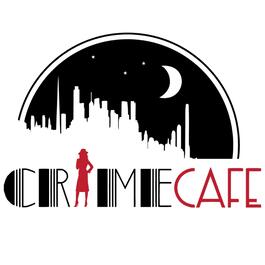
My guest for this episode of the Crime Cafe podcast is crime writer Carter Wilson. Don't miss our discussion of his process for writing thrillers without outlining. You can download the transcript here. Debbi (00:53): Hi everyone. My guest today is not only the Publisher's Weekly and USA Today bestselling author of 10 award-winning psychological thrillers, but his work has been optioned for television and film, and his latest release, Tell Me What You Did, was a Barnes and Noble National Monthly pick. Awesome. He also hosts a podcast Making It Up, and is founder of the Unbound Writer Company, which provides coaching services, writing retreats, and online courses. So he is a busy man. He has also contributed short fiction to various publications and was featured in RL Stein's young adult anthology Scream and Scream Again. I'm pleased to have with me today Carter Wilson. Hi Carter. Thanks for being here! Carter (01:46): For having me here. Debbi great. Great to talk to you. Debbi (01:49): Oh, it's great to have you here. Thank you so much. Tell us a little about your latest book and what inspired you to write it. Carter (01:58): Well, I'll start with the inspiration. A few years ago, I have a buddy named Blake and he and I would always give each other podcast recommendations, and he came up to me one day and he's like, oh, you have to check out this podcast. Basically on this podcast, people can call in and leave a voicemail and leave an apology. And so I guess the conceit of the podcast is they would just play these apologies, and the human part of my brain thought that was pretty cool. The thriller writer part of my brain immediately thought, well, what if it wasn't a podcast? What if it was a confession? And so that was kind of the nugget of the idea for my book. And I don't outline, so I never know where my book's going, but ultimately, Tell Me What You Did follows the story of 30-year-old Poe Webb, who is the host of the nation's top true crime podcast called Tell Me What You Did. Basically on this podcast, people can call in and leave a voicemail and leave an apology. And so I guess the conceit of the podcast is they would just play these apologies, and the human part of my brain thought that was pretty cool. (02:51): And that's the conceit of the podcast. People call in and they can confess to crimes anonymously, and if Poe believes them, then they have a discussion about the criminal mind. And then one day she has this really creepy guest on who seems vaguely familiar to her, and his confession is that he murdered Poe's mother. Now, of course, Poe knows her mother was murdered. Poe actually witnessed her mother's murder when she was 13. But the thing that's sticking with her, she realizes this can't be the guy because Poe spent eight years of her life tracking down that murderer and killing him herself. So she's forced with the question, who is this guy? And if he is telling the truth, who did I kill? So that's kind of the setup for the book. Debbi (03:37): Wow, that's a very intriguing setup I have to say. I also, I just started it and the way you structure the beginning, it just pulls you right in. Carter (03:50): Oh, good. Debbi (03:51): It was so intriguing. It's basically like a podcast within a podcast. Carter (03:55): Yeah. There's interspersed throughout the chapters is kind of a cut up podcast transcript between these two individuals, and that ultimate conversation takes place at the end of the book, but you're seeing glimpses of that conversation throughout the story. Debbi (04:12): That sounds fantastic. So is this kind of a commentary on true crime podcasting? Do you have any feelings about why it is that people gravitate to true crime podcasts? Carter (04:29): I mean, I don't know if I would say it's so much of a commentary because when I kind of approach a book, I'm never thinking about what is my message here? I'm just thinking about, and again, because I'm not outlining,
From "The Crime Cafe"


Comments
Add comment Feedback